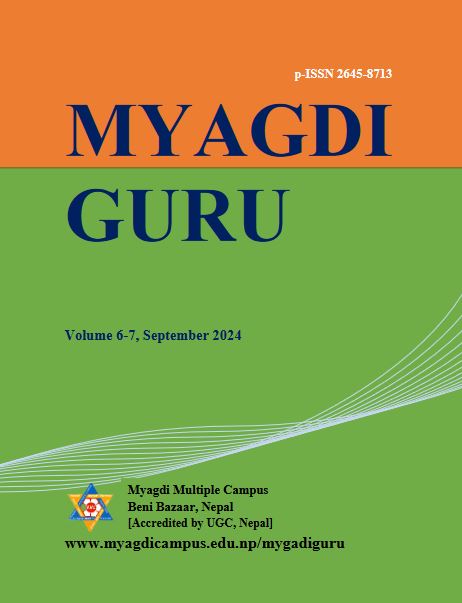Nepal’s Engagement with BIMSTEC: Prospects and Challenges
DOI:
https://doi.org/10.3126/mg.v7i1.70035Keywords:
BIMSTEC, connectivity, economic cooperation, geopolitics, multilateral organizationAbstract
The Bay of Bengal Initiative for Multi-Sectoral Technical and Economic Cooperation (BIMSTEC) is an inter-regional organisation that comprises seven member countries: Bangladesh, Bhutan, India, Myanmar, Nepal, Sri Lanka, and Thailand, connecting South and Southeast Asia, was established in 1997. This paper aims to investigate Nepal’s engagement with BIMSTEC: prospects and challenges. This study is qualitative, based on scholarly articles and news materials to explore Nepal’s engagement in BIMSTEC. It is a sectoral organization with individual member states covering diverse areas, each led by a specific nation, and Nepal leads the people-to-people contact sector. This regional platform promotes Nepal in diversifying trade, accessing deep-sea ports, and advancing connectivity, infrastructure, and economic growth. It offers opportunities for cultural exchange and potential energy collaborations. Nepal can reduce its dependence on India, explore new trade routes, and improve regional visibility, infrastructure development, and disaster management by proper utilization of BIMSTEC. Nepal can utilize BIMSTEC in the period of inactivity of SAARC. However, Nepal’s political instability, lack of good governance, and geopolitical challenges pose significant risks to regional stability and Nepal’s sustainable development efforts. Nepal must address its internal challenges to fully capitalize on these opportunities and ensure long-term regional and national benefits.
Downloads
Downloads
Published
How to Cite
Issue
Section
License
Copyright (c) 2024 The Author(s)

This work is licensed under a Creative Commons Attribution 4.0 International License.
This license enables reusers to distribute, remix, adapt, and build upon the material in any medium or format, so long as attribution is given to the creator. The license allows for commercial use.




